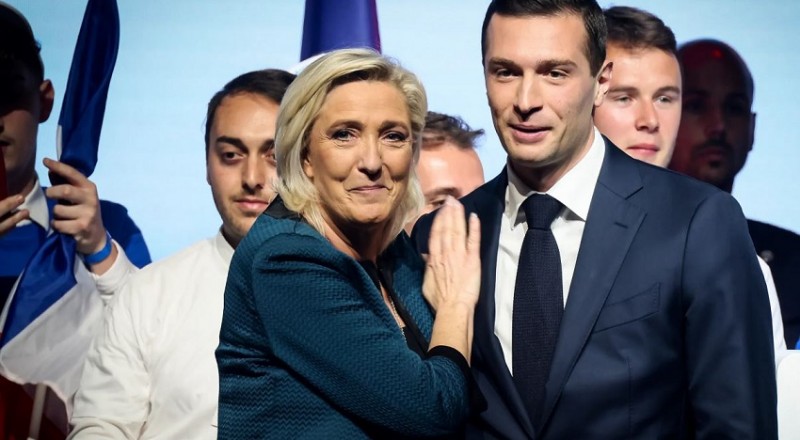
As the European Parliament elections unfold across 27 EU countries from June 6 to 9, all eyes are on France where Marine Le Pen's far-right National Rally party is expected to make significant gains, setting the stage for potential shifts in European politics and policies.
Far-right Surge in France
Despite Marine Le Pen not being on the ballot, her National Rally party is anticipated to top the polls in France, overshadowing President Emmanuel Macron's centrist pro-business party. The rise of anti-immigration and nationalist sentiments championed by Le Pen poses a significant challenge to Macron's leadership and European unity.
European Political Landscape
The European Parliament elections are likely to tilt further towards the right and far-right, potentially bolstering Le Pen's ambitions to secure the French presidency in 2027. The lead candidate for the National Rally in the European Parliament, Jordan Bardella, has campaigned on promises to restrict the free movement of migrants within the EU, ease EU pressure on Russia, and relax EU climate regulations.
"We stand by the idea of rethinking the European model around the idea of nations. Macron's Europe is a model of the past," Bardella emphasized during a recent rally in Paris.
Macron's Challenges
In contrast, Macron's pro-EU movement faces difficulties, with its chief candidate Valerie Hayer struggling to gain traction. Macron's efforts to lead Europe-wide initiatives to defend Ukraine and strengthen EU defenses and industry are under threat by the resurgence of far-right and nationalist sentiments.
Prime Minister Gabriel Attal, supporting Hayer at rallies, warned voters about the rise of authoritarianism and the threat to European unity and democracy.
"Europe is mortal because war is knocking on our door, bombs are falling on Ukraine, on democracy, on our values, and because we know that if Russia wins, it won't stop there," Attal remarked.
French and EU-wide Concerns
While voters across the EU are selecting members of the European Parliament, many are focusing on national issues. In France, voters are expected to express frustration with Macron's handling of the economy, agriculture, and security, particularly ahead of the Paris Olympics.
On the left, there has been a surprising resurgence of support for France's Socialist Party led by Raphael Glucksmann, who has pledged more ambitious climate policies and stronger protections for European businesses and workers.
Le Pen's Strategy
Marine Le Pen, who has moderated her party's stance from extreme measures like leaving the EU and the euro, now aims to weaken the EU's powers from within.
"National parties across Europe are rising not to destroy the European Union, but to build a European alliance of nations capable of facing 21st-century challenges," Le Pen asserted to her party followers.
In cities like Henin-Beaumont, voters are expressing their support for Le Pen's policies, citing her responsiveness to public concerns. Despite controversies surrounding her party's founder, Jean-Marie Le Pen, Marine Le Pen's National Rally continues to resonate with voters disillusioned by mainstream politics.
As the EU elections unfold, the rise of far-right and nationalist parties across Europe could reshape the political landscape, affecting policies on migration, climate, and security. The outcome in France, particularly the surge of the National Rally, will be closely watched as a barometer of Europe's political future.